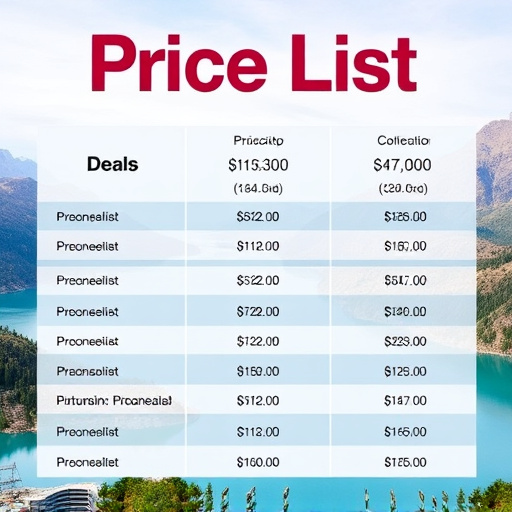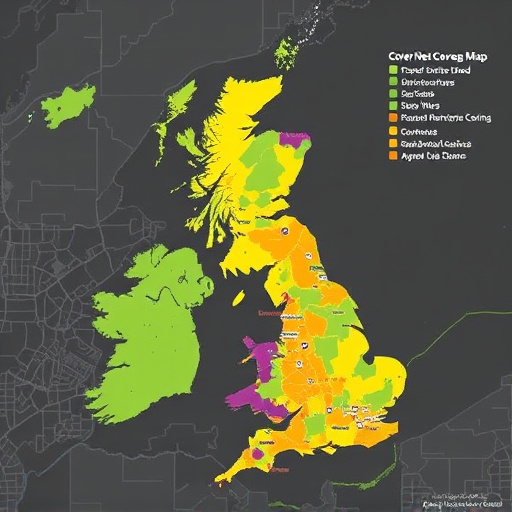Airaid filters enhance engine performance but have a finite lifespan, requiring regular maintenance based on driving conditions, environmental factors, and usage patterns. Timely replacements, as recommended by the manufacturer, prevent reduced air flow and potential engine performance issues. Signs of wear indicate the need for replacement to protect against contaminant damage. Following the Airaid filter replacement schedule, along with periodic inspections, ensures optimal vehicle performance, efficiency, and engine health.
In the realm of vehicle upkeep, the Airaid filter—a vital component ensuring optimal engine performance and efficiency—requires careful consideration regarding cleaning versus replacement timing. This article navigates the intricate balance between these two strategies, shedding light on factors influencing the Airaid filter replacement schedule. By delving into ‘Understanding Airaid Filter Performance and Lifespan’ and exploring ‘Maintenance Tips: Cleaning vs. Replacing for Optimal Efficiency’, you’ll gain insights to make informed decisions, enhancing your vehicle’s overall health in today’s digital era.
- Understanding Airaid Filter Performance and Lifespan
- Factors Influencing Replacement Timing: When to Replace?
- Maintenance Tips: Cleaning vs. Replacing for Optimal Efficiency
Understanding Airaid Filter Performance and Lifespan

Airaid filters are designed to enhance engine performance and protect against dirt, debris, and other contaminants. However, like all filtration systems, their effectiveness diminishes over time. Understanding the Airaid filter lifespan is crucial for maintaining optimal vehicle performance and efficiency. Regularly checking your filter’s condition and adhering to the recommended replacement schedule as outlined by the manufacturer can significantly impact engine health.
The Airaid filter replacement schedule varies based on driving conditions, environmental factors, and usage patterns. For instance, if you drive in areas with high dust or pollen levels, frequent short trips, or aggressive driving habits, your Airaid filter may need replacing more frequently. Conversely, if your driving is mostly urban and sustained at lower speeds, the filter’s lifespan could be extended. Regular maintenance, including timely filter changes, ensures that your vehicle’s engine receives a steady supply of clean air, leading to better fuel efficiency and reduced wear and tear.
Factors Influencing Replacement Timing: When to Replace?

The timing for replacing an Airaid filter isn’t solely based on aesthetic considerations or the urge to upgrade. Several key factors guide the decision to replace rather than clean. First and foremost is the recommended maintenance schedule provided by the manufacturer, which outlines specific intervals for filter replacement tailored to the model and usage conditions. Neglecting this schedule can lead to reduced air flow and efficiency, impacting engine performance.
Additionally, the physical condition of the filter plays a pivotal role. Even if it hasn’t reached the prescribed maintenance window, visible signs of wear, such as excessive debris buildup, tearing, or disintegration, signal the need for replacement. These indicators suggest that the filter is no longer able to effectively trap contaminants, potentially causing harm to engine components over time.
Maintenance Tips: Cleaning vs. Replacing for Optimal Efficiency

Maintaining optimal efficiency in your vehicle often comes down to a balance between cleaning and replacing components, especially when it comes to air filters like those from Airaid. The Airaid filter replacement schedule is a crucial aspect of routine maintenance. Regularly checking and replacing these filters can significantly improve engine performance and fuel economy. Cleaning the air filter, on the other hand, offers a temporary solution and might be suitable for less severe cases or when you’re between official replacement intervals. However, over time, it may become clogged beyond effective cleaning, necessitating a complete Airaid filter replacement to restore optimal airflow.
To maximize the benefits of your maintenance efforts, establish a consistent schedule that aligns with manufacturer recommendations and your driving habits. This includes periodically inspecting the Airaid filter for buildup or debris and acting promptly when needed. Regular maintenance ensures that your engine receives clean, unRestricted air, which is essential for efficient combustion and overall vehicle health.
When deciding between cleaning or replacing your Airaid filter, understanding its performance and lifespan is key. Regular maintenance, including timely replacement according to the recommended schedule, ensures optimal engine efficiency and performance. By considering factors like usage and environmental conditions, you can extend the life of your Airaid filter and avoid frequent replacements. Remember, proper upkeep not only saves costs but also contributes to a cleaner, more efficient driving experience.














